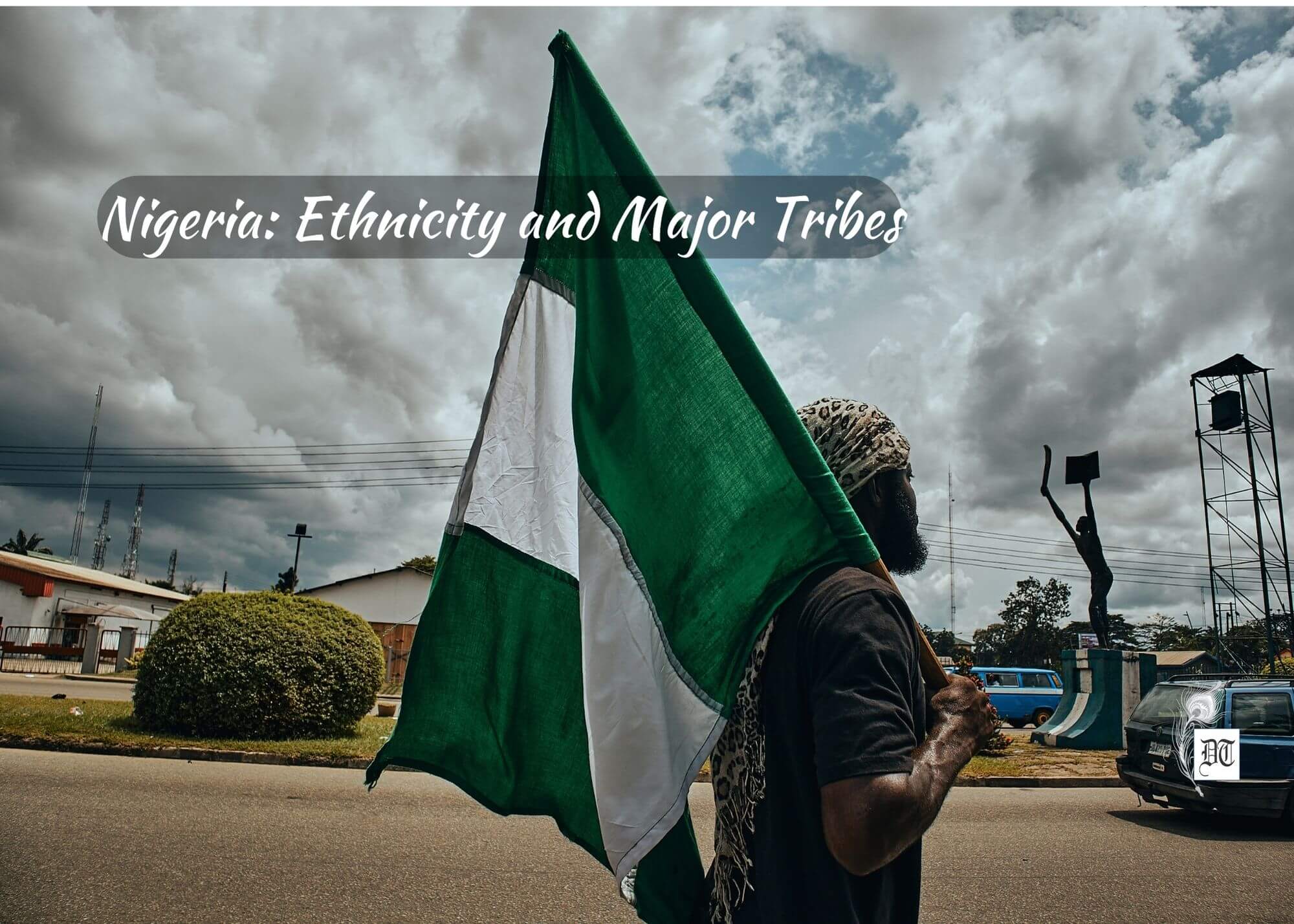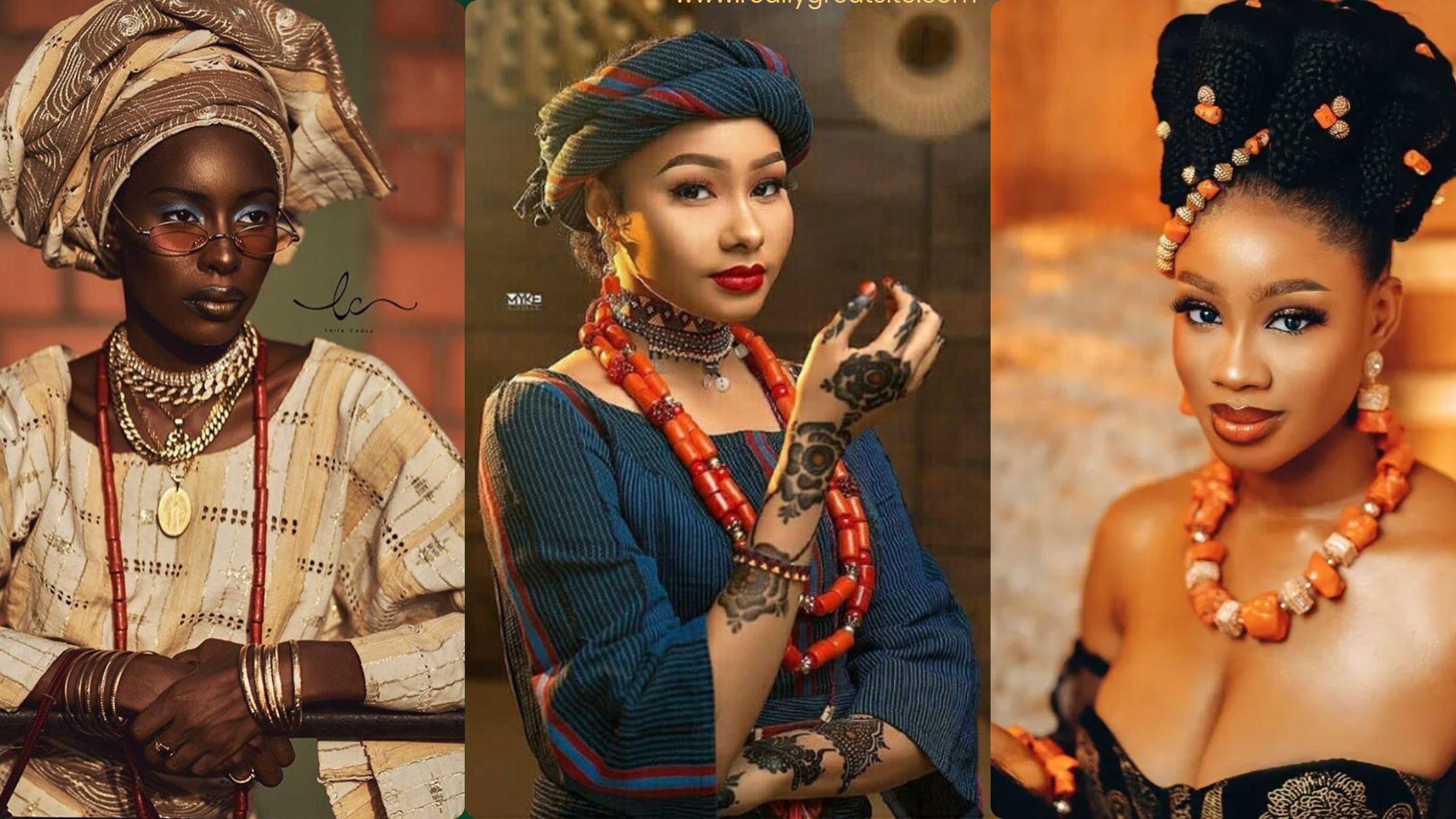When you think about Nigeria, one of the first things that pop into your mind is the incredible diversity of its people. The major tribes in Nigeria are like threads in a vibrant tapestry, each with its unique traditions, languages, and ways of life. But here's the deal—this diversity isn't just colorful; it's a powerful force that shapes the nation's identity. So, if you're curious about the major tribes in Nigeria and what makes them tick, you're in the right place.
From the bustling streets of Lagos to the serene landscapes of the north, Nigeria is home to over 250 ethnic groups, but three stand out as the biggest players. These tribes aren't just numbers; they're the heart and soul of the nation, influencing everything from politics to culture. If you've ever wondered how such a diverse country manages to stay united, this article will give you some serious insights.
Our journey through the major tribes in Nigeria isn't just about listing facts; it's about understanding the people behind the numbers. We'll dive into their history, language, traditions, and even touch on how they interact with each other. So, whether you're a culture enthusiast, a history buff, or just someone looking to broaden your horizons, buckle up because we're about to take you on a wild ride.
Understanding Nigeria's Cultural Diversity
Why Focus on Major Tribes?
Alright, let's get one thing straight—Nigeria is a melting pot of cultures, and the major tribes are the main ingredients in this recipe. But why focus on them? Well, these tribes—Hausa, Igbo, and Yoruba—make up about 68% of the population, and their influence is felt in every corner of the country. They're not just big in numbers; they've shaped the political, economic, and social landscape of Nigeria for decades.
But here's the twist—focusing on the major tribes doesn't mean ignoring the smaller ones. It's more about understanding the dominant cultural forces that drive the nation. Think of it like a football team; you need to know the star players to understand the game, but that doesn't mean the rest of the team isn't important. The major tribes in Nigeria are like those star players, setting the tone for the rest of the country.
Major Tribes in Nigeria: A Quick Overview
Who Are the Big Three?
So, who exactly are the major tribes in Nigeria? Let's break it down:
- Hausa: Predominantly found in the northern part of Nigeria, the Hausa people are known for their rich Islamic heritage and influential role in Nigerian politics.
- Igbo: Hailing from the southeastern region, the Igbo tribe is renowned for its entrepreneurial spirit and vibrant cultural practices.
- Yoruba: Found in the southwestern part of Nigeria, the Yoruba people are famous for their artistic flair and deep-rooted traditions.
Each of these tribes brings something unique to the table, and together, they form the backbone of Nigeria's cultural identity. But let's not stop at just naming them; we're going to explore each one in detail, so you can get a real feel for what makes them tick.
Hausa: The Guardians of the North
A Glimpse into Hausa Life
When you step into the northern regions of Nigeria, you're stepping into Hausa territory. The Hausa people are the largest ethnic group in West Africa, and their influence extends far beyond Nigeria's borders. Their culture is deeply intertwined with Islam, and you can see this in everything from their architecture to their daily lives.
But here's the thing—the Hausa aren't just about religion. They're also major players in the business world, with a rich history of trade and commerce. If you've ever seen a bustling market in Kano, you've witnessed the Hausa's entrepreneurial spirit in action. And let's not forget their language, Hausa, which is one of the most widely spoken languages in Africa.
Igbo: The Entrepreneurs of the East
What Makes the Igbo Tribe Unique?
Head down to the southeastern part of Nigeria, and you'll find the Igbo people. Known for their fierce independence and entrepreneurial flair, the Igbo tribe has played a crucial role in Nigeria's economic development. But their contributions go beyond business; the Igbo are also known for their vibrant cultural practices and traditional dances.
One of the coolest things about the Igbo is their language. Igbo is one of the official languages of Nigeria, and it's spoken by millions of people. But here's a fun fact—it's not just one language; there are over 20 dialects of Igbo, each with its unique characteristics. So, if you're thinking about learning a new language, Igbo might just be the one for you.
Yoruba: The Artists of the Southwest
The Cultural Riches of the Yoruba
Now, let's talk about the Yoruba people. Found in the southwestern part of Nigeria, the Yoruba are famous for their artistic flair and deep-rooted traditions. If you've ever seen a stunning piece of African art, chances are it was crafted by the Yoruba. From intricate wood carvings to beautiful beadwork, the Yoruba are masters of their craft.
But the Yoruba aren't just about art; they're also deeply spiritual people. Their traditional religion, Ifa, is still practiced by many, and it plays a significant role in their daily lives. And let's not forget their language, Yoruba, which is one of the most widely spoken languages in Nigeria. So, whether you're into art, spirituality, or language, the Yoruba have something to offer.
Other Notable Tribes in Nigeria
Beyond the Big Three
While the Hausa, Igbo, and Yoruba are the major tribes in Nigeria, they're not the only ones worth talking about. There are over 250 ethnic groups in the country, each with its unique traditions and ways of life. Some of the other notable tribes include:
- Fulani: Known for their nomadic lifestyle and cattle herding, the Fulani people are an integral part of Nigeria's northern regions.
- Tiv: Found in the central part of Nigeria, the Tiv tribe is famous for its vibrant cultural festivals and traditional dances.
- Ijaw: Hailing from the Niger Delta region, the Ijaw people have a rich maritime history and play a crucial role in Nigeria's oil industry.
These tribes, among many others, contribute to the rich cultural tapestry of Nigeria, making it one of the most diverse countries in the world.
The Role of Language in Nigerian Culture
How Language Shapes Identity
Language is a powerful tool, and in Nigeria, it plays a crucial role in shaping cultural identity. The major tribes in Nigeria each have their own language, and these languages are not just means of communication; they're a reflection of the people's history, values, and beliefs.
But here's the interesting part—despite the diversity of languages, English is the official language of Nigeria. This is a legacy of British colonial rule, and it serves as a unifying force in a country with so many different tongues. However, the local languages are still very much alive and kicking, and they continue to play a significant role in everyday life.
Religion and Spirituality in Nigeria
A Blend of Beliefs
When it comes to religion, Nigeria is a fascinating mix of beliefs. The Hausa people are predominantly Muslim, while the Igbo and Yoruba tribes have a mix of Christians and practitioners of traditional religions. This diversity of faiths is a testament to Nigeria's rich spiritual heritage.
But religion isn't just about going to church or mosque; it's about how it influences daily life. From festivals to family traditions, religion plays a significant role in shaping the cultural landscape of Nigeria. And let's not forget the spiritual leaders who serve as guiding lights in their communities. Whether you're Muslim, Christian, or a follower of a traditional religion, there's something to appreciate in Nigeria's spiritual diversity.
Challenges Facing the Major Tribes in Nigeria
Issues of Unity and Diversity
While the major tribes in Nigeria are a source of pride, they also face challenges. One of the biggest issues is how to maintain unity in such a diverse country. With so many different languages, religions, and cultural practices, finding common ground can be a challenge.
But here's the good news—Nigerians are resilient, and they've shown time and again that they can overcome these challenges. From inter-tribal marriages to cultural exchange programs, there are many ways in which Nigerians are coming together to celebrate their differences while finding common ground.
Conclusion: Celebrating Diversity in Nigeria
In conclusion, the major tribes in Nigeria are the backbone of the nation's cultural identity. From the Hausa in the north to the Igbo in the east and the Yoruba in the west, each tribe brings something unique to the table. But it's not just about the big three; the smaller tribes also play a crucial role in shaping Nigeria's cultural landscape.
So, what can you do to celebrate this diversity? Well, for starters, you can share this article with your friends and family. You can also learn more about the different tribes and their cultures. And if you're ever in Nigeria, take the time to experience the rich cultural heritage firsthand. Because at the end of the day, it's this diversity that makes Nigeria such a fascinating and vibrant country.
Table of Contents
- Major Tribes in Nigeria: A Deep Dive into the Rich Cultural Tapestry
- Understanding Nigeria's Cultural Diversity
- Why Focus on Major Tribes?
- Major Tribes in Nigeria: A Quick Overview
- Who Are the Big Three?
- Hausa: The Guardians of the North
- A Glimpse into Hausa Life
- Igbo: The Entrepreneurs of the East
- What Makes the Igbo Tribe Unique?
- Yoruba: The Artists of the Southwest
- The Cultural Riches of the Yoruba
- Other Notable Tribes in Nigeria
- Beyond the Big Three
- The Role of Language in Nigerian Culture
- How Language Shapes Identity
- Religion and Spirituality in Nigeria
- A Blend of Beliefs
- Challenges Facing the Major Tribes in Nigeria
- Issues of Unity and Diversity
- Conclusion: Celebrating Diversity in Nigeria



Detail Author:
- Name : Faustino Grant
- Username : thurman.schuppe
- Email : austen50@bechtelar.net
- Birthdate : 2007-05-26
- Address : 296 Cory Crossroad Apt. 447 Raeganland, VA 33051
- Phone : (603) 275-2441
- Company : Bechtelar-Yundt
- Job : Housekeeping Supervisor
- Bio : Dolores perspiciatis quibusdam molestiae ut accusantium rerum. Ab ducimus consectetur a qui necessitatibus. Eius qui fugit similique a. Qui assumenda sint modi ut consequatur eaque.
Socials
tiktok:
- url : https://tiktok.com/@kuhn2015
- username : kuhn2015
- bio : Ut tenetur aut qui hic sit. Molestiae aut commodi possimus distinctio vero.
- followers : 4163
- following : 197
facebook:
- url : https://facebook.com/madyson_dev
- username : madyson_dev
- bio : Voluptatem sequi perferendis nostrum cum.
- followers : 493
- following : 162